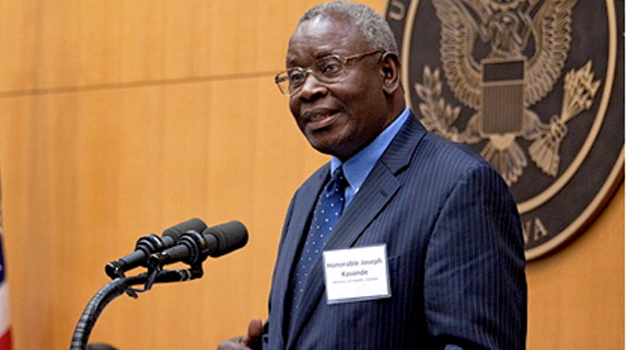By BRIAN HATYOKA –
THE Ministry of Finance has released K25 million to the ministry of Health to support the preparedness and response activities for epidemics such as cholera, Health Minister Joseph Kasonde has said.
Dr Kasonde said Zambia needs to continue investing in long-term measures that ensure the communities had access to clean and safe water supply as well as assuring food safety.
He said a National Epidemic Preparedness, Control and Management Committee was meeting frequently and regularly to monitor and provide guidance on the cholera situation.
Dr Kasonde was speaking in Livingstone yesterday at a media briefing, where he outlined the cholera situation in the country during the month of February this year.
Outlining the various measures that the Government had put in place to mitigate cholera in the country, Dr Kasonde said all health institutions had been put on alert and requested to re-enforce preventive measures and reactivate epidemic preparedness committees.
He said his Ministry would re-orient health care workers in cholera response and management in affected areas.
Cholera treatment centres had been opened in Lusaka’s Kanyama, Matero as well as at Twalumba Rural Health Center in Chibombo District.
Further, all necessary logistics, drugs and medical supplies were being mobilised while health staff had been mobilised to attend to patients.
“The Ministry of Health has embarked on health promotion activities to sensitise the communities. Further, the Ministry was providing free domestic chlorine particularly to affected communities,” he said.
Dr Kasonde also said health inspectors and environmental health staff had been mobilised to strengthen inspection of eating and drinking places, bars, taverns, restaurants and general dealer shops and schools saying closure notices were being issued immediately to those companies which were not meeting public health standards.
“Apart from environmental health staff contact tracing, community based health workers have been mobilised to ensure that all patients and contacts are traced and their homes thoroughly disinfected.
“I therefore urge the civic and community leaders to provide leadership and play their role in the prevention and control of cholera in their respective communities,” he said.
The first four confirmed cases of cholera were members of the same family who reported at Kanyama clinic on February 7, 2016.
“The outbreak began in Kanyama Township in Lusaka where the first case was a child of 18 months, who had diarrhoea and vomiting. Unfortunately, the child died at home before getting to the health facility,” Dr Kasonde said.
As of February 15, 2016, Lusaka District had 30 suspected cholera cases with 14 being confirmed by laboratory examination while there were five cases under treatment in Kanyama Township.
Chibombo had on the same date reported eight suspected cases of Cholera with two cases being confirmed by the laboratory.
The index case was a patient from Kanyama Township who had visited relatives in Chibombo.







